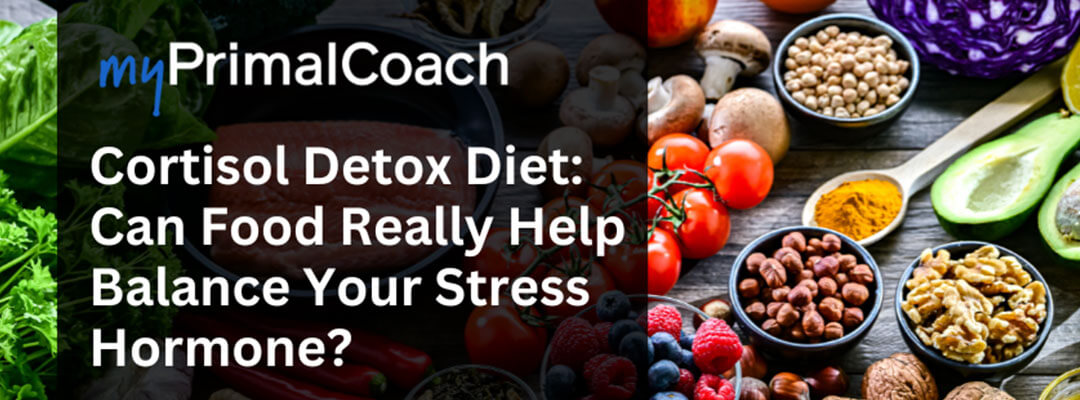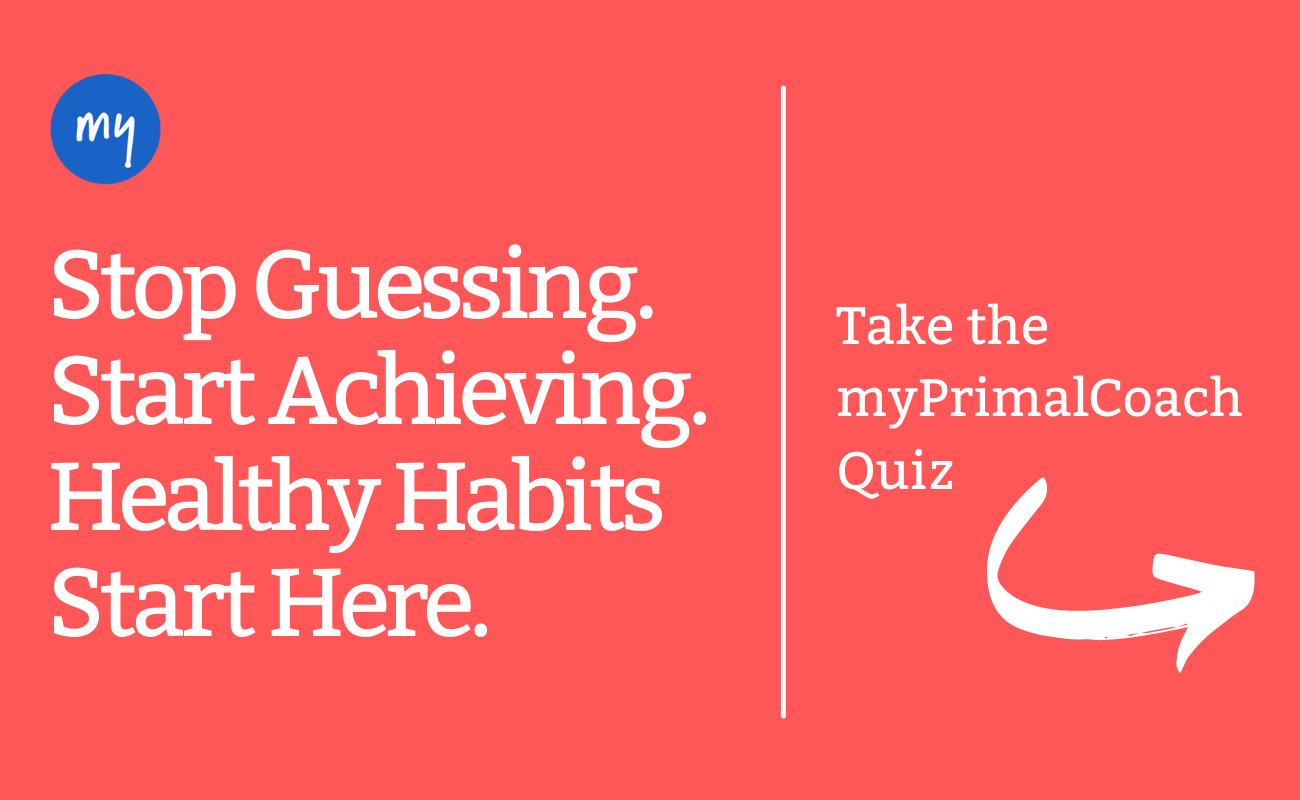A cortisol detox diet is gaining popularity as more of us seek natural ways to counter the harmful effects of chronic stress on our bodies. Chronic stress takes more than just an emotional toll. It also affects us physically and can silently sabotage our health over time.

A cortisol detox diet can be an effective tool to keep your body’s cortisol levels in check.
At the crux of the body’s stress response lies cortisol, a hormone that helps us cope with immediate threats but can wreak havoc when it consistently hangs out at an elevated level.
A diet to help detox cortisol is a nutritional approach that doesn’t exactly flush out cortisol in a literal sense, but can help in other ways. Eating (and avoiding) the right foods can bring the body back into a cortisol balance.
Before we dive into the details of a cortisol detox diet, first things first: What exactly is cortisol?
Understanding Cortisol
Cortisol is often dubbed the "stress hormone” and for good reason. It is released by the body in response to stress triggers—whether physical, emotional, or environmental.
Cortisol is a vital hormone made by the adrenal glands, which sit on top of the kidneys. Cortisol plays an important role in many bodily functions by acting as a key messenger in the body's stress response system.
When we find ourselves in stressful situations, cortisol is released to help us cope and beat stress by:
- Increasing blood sugar levels for energy,
- Suppressing the immune system
- Influencing our mood and motivation.
While cortisol is absolutely essential for short-term survival, when stress levels remain high for extended periods, cortisol can become chronically elevated.
Chronically elevated levels of this powerful adrenal stress hormone can have detrimental effects on various aspects of our health including:
- Mental health disorders such as anxiety and depression.
- Accumulation of stubborn fat, particularly around the abdomen.
- Urge to seek out high-calorie comfort foods.
- Brain diseases like Alzheimer's, Parkinson's, brain inflammation and an increased sensitivity to chronic pain, as discussed in a 2023 review published in Cells.
It’s pretty evident that cortisol needs to be balanced—let’s explore how diet plays a role in doing so.
What Is a Cortisol Detox Diet?
The term "cortisol detox diet" might sound appealing to flush excess stress hormones from your system, but it may also scream “quick fix” you want to run away from. However, don’t let the word detox leave you skeptical.
While there isn't a scientifically recognized or established "detox diet" specifically designed to eliminate cortisol, our bodies have built-in mechanisms to do just so. Our liver and kidneys are naturally equipped to regulate and process hormones, including cortisol.
Instead of focusing on a restrictive detox, think of a "cortisol detox diet" as more of a dietary approach aimed at supporting the body's inherent ability to regulate cortisol levels and mitigate the negative impacts of chronic stress.
This typically involves eating foods that help stabilize blood sugar, reduce inflammation, support adrenal gland function, and promote our overall well-being. All of these can indirectly contribute to healthier cortisol patterns.
Ultimately, a cortisol detox diet is more about eating a nutritious and balanced diet that is designed to nourish your body and foster a more resilient stress response.
Cortisol Detox Diet: Foods to Eat
While there's no magic food that will instantly "detox" cortisol from your body, certain nutrients and food groups play a significant role in supporting your body's stress response. Some foods can help regulate blood sugar and reduce inflammation, which can contribute to healthier cortisol levels.
Focus on incorporating these beneficial foods into your daily routine as part of a cortisol detox diet:
Fruits & Vegetables
Support antioxidant defense, hormone regulation, and energy balance:
- Berries (blueberries, raspberries, strawberries): High in antioxidants to fight oxidative stress.
- Leafy Greens (spinach, kale, collard greens, Swiss chard): Rich in magnesium and fiber and support nerve function and stress regulation.
- Avocados: Contain healthy fats and potassium to reduce inflammation and regulate blood pressure.
- Brightly Colored Veggies (bell peppers, carrots, sweet potatoes): Packed with antioxidants, vitamins, and minerals. Sweet potatoes also offer complex carbs for steady energy.
- Vitamin C–Rich Produce: Oranges, kiwi, strawberries, bell peppers, broccoli, all help lower cortisol and support adrenal function.
- Bananas: A source of magnesium and tryptophan, a precursor to serotonin.
Proteins
Balance blood sugar and support neurotransmitter production:
- Fatty Fish (salmon, mackerel, sardines): High in omega-3 fatty acids to reduce inflammation and modulate stress response.
- Poultry: Provides lean protein to stabilize blood sugar and support satiety.
- Eggs: A complete protein with choline for brain health and hormone regulation.
- Beans & Lentils: Plant-based proteins with magnesium and fiber for gut and hormone health.
Whole Grains
Some research suggests that whole grains may positively influence mood, potentially by supporting the production of serotonin, which can help counteract stress. Examples include:
- Oats
- Quinoa
Healthy Fats
Reduce inflammation and support hormone balance:
- Nuts & Seeds (almonds, walnuts, chia, flax, pumpkin): High in omega-3s, magnesium, and antioxidants. The overall nutrient density and healthy fats found in nuts and seeds may contribute to a more balanced hormonal environment.
- Olive Oil: Anti-inflammatory and rich in monounsaturated fats.
- Avocados: double as a healthy fat and a magnesium-rich food.
Magnesium-Rich Foods
Magnesium is known to help calm the nervous system and regulate cortisol. Foods rich in the mineral include:
- Leafy greens
- Avocados
- Bananas
- Black beans
- Pumpkin seeds
Fermented Foods
Research suggests a link between a healthy gut microbiome and the regulation of the stress response and cortisol levels. A healthy gut equals better stress resilience:
- Yogurt (unsweetened, full-fat)
- Kefir
- Sauerkraut
- Kimchi
- Miso
Hydration & Anti-Inflammatory Beverages
Flush stress hormones and calm the system:
- Water (with a pinch of sea salt for adrenal support)
- Herbal teas (chamomile, lemon balm, rooibos, passionflower): Naturally calming
- Green tea: Contains L-theanine, which helps reduce anxiety and cortisol
- Coconut water: Natural electrolytes for adrenal health
Dark Chocolate
A 2019 study published in Antioxidants found that dark chocolate, which is high in polyphenols, significantly reduced total daily cortisol and morning cortisol levels. The researchers concluded that polyphenol-rich dark chocolate may lower salivary cortisol levels, possibly by inhibiting a specific enzyme.
Cortisol Detox Diet: Foods to Avoid
While focusing on nutrient-dense foods is key, it's equally important to be mindful of dietary choices that can negatively impact blood sugar, increase inflammation, and further dysregulate your body's stress response. These factors can potentially lead to elevated or imbalanced cortisol levels. Consider limiting or avoiding the following:
Refined Sugars and Processed Foods:
- Sugary Drinks (soda, fruit juices with added sugar, sweetened teas): These cause rapid spikes in blood sugar, which can trigger a cortisol release to bring levels back down. Frequent spikes and crashes can stress the adrenal glands and contribute to insulin resistance.
- Processed Snacks (candy, pastries, cookies, chips): Often high in refined sugars, unhealthy fats, and artificial ingredients, these can contribute to inflammation and unstable blood sugar levels.
- Refined Carbohydrates (white bread, white pasta, sugary cereals): These are quickly digested, leading to rapid glucose spikes similar to sugary drinks.
Excessive Caffeine:
Coffee (in large amounts): It’s important to limit caffeine intake. Caffeine is a stimulant that can trigger the release of cortisol and adrenaline. While moderate coffee intake may be fine for some, excessive consumption, especially on an empty stomach or close to bedtime, can exacerbate stress and disrupt sleep, further impacting cortisol regulation.
Energy Drinks:
Typically contain high levels of caffeine and sugar, leading to a double whammy of blood sugar spikes and cortisol release.
Excessive Alcohol:
While a small amount of alcohol might initially feel relaxing, it can disrupt sleep cycles and lead to a surge in cortisol levels later in the night. Chronic excessive alcohol consumption can significantly impact the endocrine system, including cortisol regulation.
Unhealthy Fats:
- Fried Foods: Often contain trans fats and high levels of saturated fats, both of which can contribute to inflammation in the body.
- Processed Foods with Hydrogenated Oils: These are sources of artificial trans fats, which have negative impacts on overall health and can contribute to inflammation.
- Excessive Amounts of Saturated Fats (from processed meats, some dairy): While not all saturated fats are bad, high intakes, especially from less healthy sources, can be inflammatory for some individuals.
Highly Processed Foods with Artificial Additives:
These foods often contain artificial sweeteners, preservatives, and other additives that can potentially disrupt gut health and contribute to inflammation, indirectly impacting the stress response.
Is A Cortisol Detox Diet Primal-Friendly?
A cortisol detox diet that focuses on whole foods, gut health, stable blood sugar, and anti-inflammatory nutrition is not only safe but potentially very beneficial, especially for those dealing with chronic stress, burnout, or mood issues.
It’s also easy to keep the diet aligned with the principles of a Primal way of eating. In fact, the core tenets of a cortisol detox diet closely resemble those of a Mediterranean diet.
By making a few small tweaks, such as cutting out grains and legumes and limiting dairy, a cortisol detox diet can seamlessly translate into a Primal diet.
Summary
As discussed above, a cortisol detox diet can be an effective tool to keep your body’s cortisol levels in check. However, nutrition is just one piece of the puzzle. Lifestyle factors, particularly effective stress management techniques and consistent sleep hygiene, are equally crucial. Sleep hormones can directly influence cortisol levels, and disruptions can trigger its release or impair its regulation.
With a few simple lifestyle interventions, such as moderating your eating habits, prioritizing quality sleep, and incorporating a stress-busting mindfulness practice, you can significantly support your body’s ability to maintain balanced cortisol levels.
A myPrimalcoach is ready to help you battle cortisol. A coach can help you pick the right foods, locate the best cookbook to balance hormones, and just help you optimize your overall health concerns and wellness goals.

